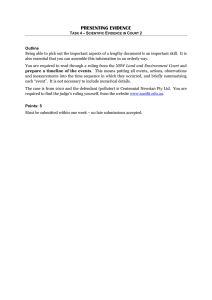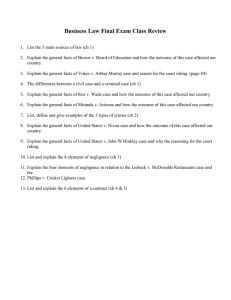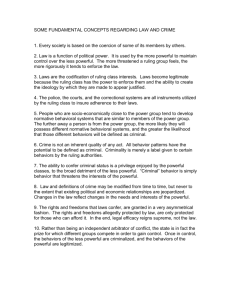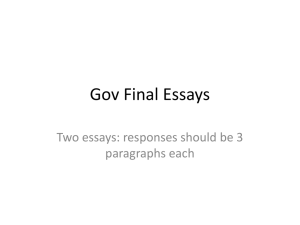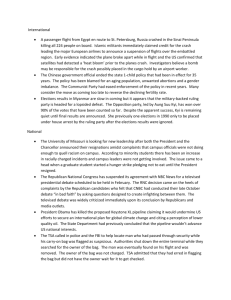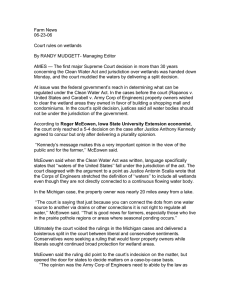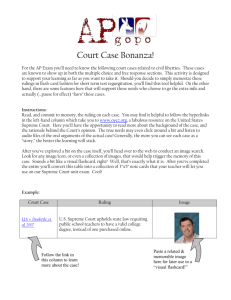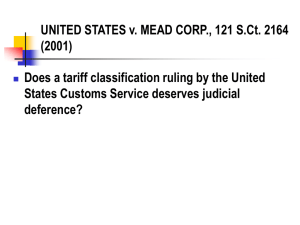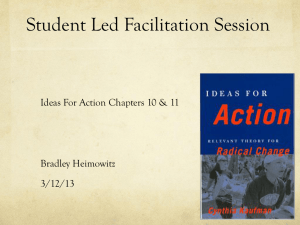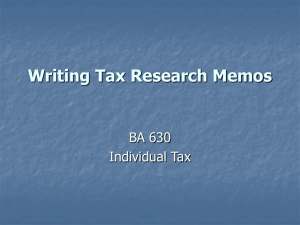Ethical Conflicts in Student Leadership Through a Legal Lens
advertisement
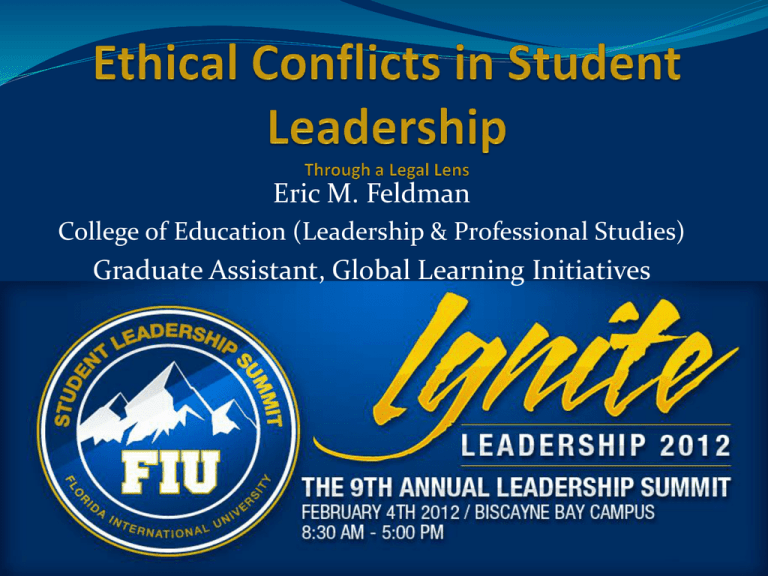
Eric M. Feldman College of Education (Leadership & Professional Studies) Graduate Assistant, Global Learning Initiatives Session Goals Clarified Values Effective Communication Understand the historical and legal context of the rules and policies surrounding student leadership. Have a heightened awareness of sensitive issues that must be addressed in student leadership. Be able to analyze ethical dilemmas though thoughtful processes, rather than snap judgments. Understand others’ perspectives/opinions. Be able to effectively communicate own point of view to others. Diversity Appreciation Interpersonal Skills Leadership Development Duality of Ethical Conflict What should be allowed? What should be done? Should a student organization host a contest where participants portray “ugly women,” including the use of blackface? Iota Xi Chapter of Sigma Chi Fraternity vs. George Mason University, 1991 The dean of students agreed and imposed discipline on the fraternity, preventing it from holding social and sports activities for a two-year period. Ruling: The event was protected free speech The college suffered no “material disruption” Student Organizations > Freedom of Speech Should a university remove content from a bulletin board if a member of the community complains that it is offensive? Burnham v. Ianni, 1997 The president ordered the removal of two faculty photos, one containing a rifle and the other a sword, because of a sexual harassment complaint. Ruling: The suppression of the photos was unreasonable. The board was being used for its intended purpose. Administrative Authority > Freedom of Speech > Public Forum Should a university provide a refund of student fees to a student who does not want his money going to student organizations? Southworth v. University of Wisconsin, 2000 Students sued because they felt the government was compelling them to support speech with which they may not agree, via the funding of political student groups. Ruling: Upheld university’s right to facilitate the exchange of ideas via student orgs, but with viewpoint neutrality. Student Organizations > Activity Fees > Freedom of Association Should a religious student organization exclude students who may not profess the group’s beliefs? Christian Legal Society v. Walker, 2006 University revoked recognition of group for refusing to allow homosexual students on the executive board. Ruling: By forcing the group to accept homosexual members, the university is infringing upon its right to express its disapproval of homosexuality. Student Organizations > Freedom of Association Should a student newspaper publish offensive remarks about university administrators? Yeagle v. Collegiate Times, 1998 Article listed an administrators title, underneath of a block quote, as “Director of Butt Licking.” Ruling: Not libel, because it could not be reasonably interpreted as factual as opposed to satirical. Student Organizations > Freedom of Press Should a university dismiss a nursing student due to obesity? Russell v. Salve Regina College, 1989 Administrators found the student’s weight to be unsatisfactory for a nursing student. Student agreed to a contract to improve, attended Weight Watchers, but did not lose weight and was asked to leave. Ruling: Dismissal constituted a violation of the school’s contract with the student to educate. Awarding of Degrees> Discrimination In a group: 1. Review the details of each situation, from the provided pages. 2. Individually, decide what you think is the “right” thing to do in each situation. 3. Each member will make a case to their groupmates to accept their point of view. 4. One member of the group will be responsible for presenting the group’s viewpoint, as well as whether or not the viewpoint was unanimous. ***15 minutes to work with your group Revisit the Opinion Inventory you filled out at the beginning of the session. The same questions are printed on the back. Answer them again, and see if your thoughts have changed. Consider: Did my opinions change due to the arguments of fellow students? Did I change my opinions as I was forming my own arguments? Did taking time to really think through the situation help me to form a better opinion? efeldman@fiu.edu Office: GL 461 (MMC)
